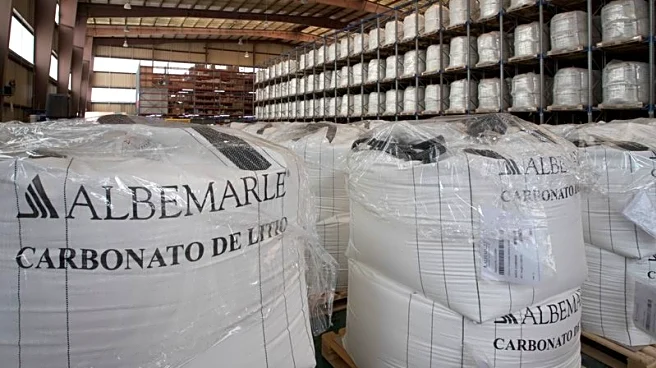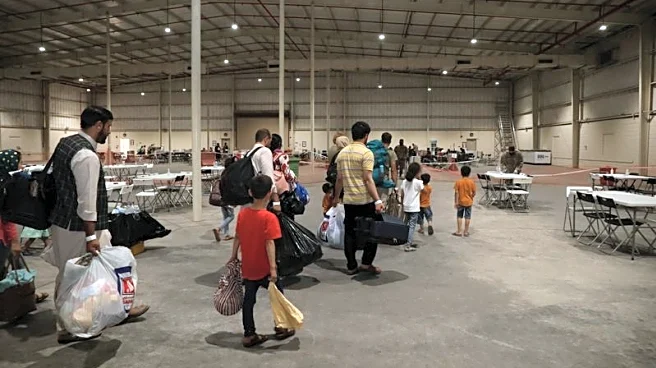Rapid Read • 7 min read
A major storm system recently swept through central Saskatchewan, causing significant damage to crops due to strong winds, rain, and hail. The storm affected areas from North Battleford to Rosthern and Saskatoon to Humboldt. Dean Roberts, Chair of SaskOilseeds, reported that while his farm in Coleville missed the latest storm, it had previously been hit by golf ball-sized hail. The storm has led to lodging, which complicates the harvesting process by slowing down the pace of combining. Farmers are now facing the challenge of carefully harvesting crops to avoid damaging equipment and preserving crop quality.
AD
The storm's impact on crops in Saskatchewan highlights the vulnerability of agriculture to extreme weather events. Farmers face increased operational costs and potential losses in crop quality, which can affect market prices and supply chains. The need for careful harvesting to avoid equipment damage and preserve crop grade underscores the economic risks posed by such weather conditions. This situation may prompt discussions on improving agricultural resilience and adapting farming practices to mitigate the effects of climate change.
Farmers in the affected areas will continue to assess the damage and adjust their harvesting strategies to minimize losses. There may be increased interest in developing more resilient crop varieties and investing in technology to better predict and respond to extreme weather events. Agricultural stakeholders might advocate for policy measures to support farmers in adapting to changing climate conditions.
The storm's impact on agriculture in Saskatchewan could lead to broader discussions on climate change adaptation strategies in farming. It raises questions about the sustainability of current agricultural practices and the need for innovation in crop management and weather forecasting. The event may also influence public policy regarding climate resilience in the agricultural sector.
AD
More Stories You Might Enjoy












